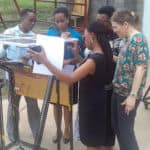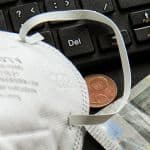How Investors and Energy Providers Can Unleash Solar Growth in Uganda
As part of its market development approach, the United Nations Capital Development Fund (UNCDF) CleanStart programme provides de-risking capital to clean energy service providers in Least Developed Countries (LDCs). To date, we have funded 25 majority local companies in Uganda, both with grants and concessional debt.
As we have seen over the past year, the market potential is huge. But there are challenges in developing the next pipeline of investment-ready companies. To address this, we ran a pilot to incubate the Ugandan Solar Energy Association (USEA) to be a Business Development Services (BDS) Hub for its member base of 150 solar companies and financial institutions in Uganda.
Why?
UNCDF recognizes that growth in the solar sector (in both companies present and customer outreach) requires ecosystem enabling services. This includes access to finance advisory and business development services.
The Ugandan solar market is a prime destination for local and international clean energy access investment. But new investors have low understanding of:
- The maturity/development of companies in the space
- The types of investments they need
- What additional support solar company managers may need in preparation to receive investment.
UNCDF partnered with Challenges Uganda to complete a market study on the BDS needs of USEA members. As part of this process, Challenges Uganda developed tools to assess:
- Members’ needs,
- Their investment plans,
- Their appetite for USEA’s provision of BDS services, and
- Members’ investment risk profiles.
What We Learned
Sales and marketing are lagging
Challenges uses a diagnostic tool to understand operational performance. This diagnostic provides an independent assessment of business performance across key themes. Using this tool, we discovered that most of the members assessed struggle when it comes to sales and marketing. Common issues across the companies include:
- A lack of training for sales teams
- Limited monitoring of competitors
- Little market research and positioning
- Inability to sustain a competitive advantage
Companies are eager for investment
The majority of assessed members are looking for near-term investment (within the next 12 months). But, it’s not clear whether these companies are ready to receive investments.
The diagnostic assessment revealed that fewer than half (42 percent) of the members looking for investment within the next 12 months have the operational strength to absorb investments effectively.
There is high risk exposure
A risk exposure assessment across seven areas (market risk, credit risk, funding risk, continuity risk, foreign exchange risk, management risk, operational risk) found that, on average, members were highly exposed to risk in three or four of these areas. This ranges from an inability to estimate consumer demand to fluctuations in the foreign exchange rate impacting the cost of supplies.
There are issues on the supply side of investment
Half of the members assessed experienced problems accessing finance from the formal sector, with a high risk of refusal. There are various issues influencing the supply side of the investment landscape.
First, many members are in need of small levels of investment, a ticket size that most investors are unwilling to consider. This problem is particularly prevalent with local companies that do not have the same ability to seek out international investors.
Second, there is a general lack of understanding of solar business models. Most financial institutions view the pay-as-you-go model as risky. They are unwilling to commit to the lending periods and terms of repayment these companies believe they need. Although part of the problem is a lack of understanding of the model, such doubts are not wholly without foundation as the recent struggles of Mobisol show. (See additional analysis of Mobisol on NextBillion here.)
Education and reflection are key to increasing investor funding
There is a lack of understanding in the financial sector of how solar companies operate. This contributes towards a wide information gap in the market for solar investment. This suggests that a key element to any solution is education. This should include:
- educating solar companies about what type of investment to look for, and
- educating financial institutions on solar business models
This could enable investors to offer the reduced ticket sizes required by many solar companies.
Leadership at solar companies also need to reflect on whether they actually need investment. Improvements in financial management systems could help free up funds that some companies would otherwise seek from external sources.
Long-term success is about best practice and operational performance
Generally, the assessment found that longer-established companies with lower revenues than their younger peers with the same business model tended to show significant needs across all areas of operational performance. Younger companies who were in at least as good (if not better) financial position than those older companies exhibited much stronger performance in key operational areas.
What this means is simple: companies that are more aware of the importance of best practices and standards in operational performance are much more likely to succeed long term. As the sector grows and matures, we are likely to see the emergence of a smaller group of well-established solar companies committed to ongoing operational improvements. This will leave behind companies who failed to place a similar focus on such activities. This emphasizes the potential role of BDS in developing a strong and successful solar industry.
Note: To download a copy of the full Needs Assessment Report, please click here.
George Bryson is an associate and Marcel Koomson is a manager at Challenges Uganda
Giovanni Congi is a Communications Consultant at United Nations Capital Development Fund.
Marcel Koomson is a manager with with Challenges Uganda, where he oversees the overall strategy and development of the organization.
Teresa Le is a Partnerships – Energy Finance consultant at the UNCDF’s CleanStart Programme.
Photo courtesy of David Monje.



